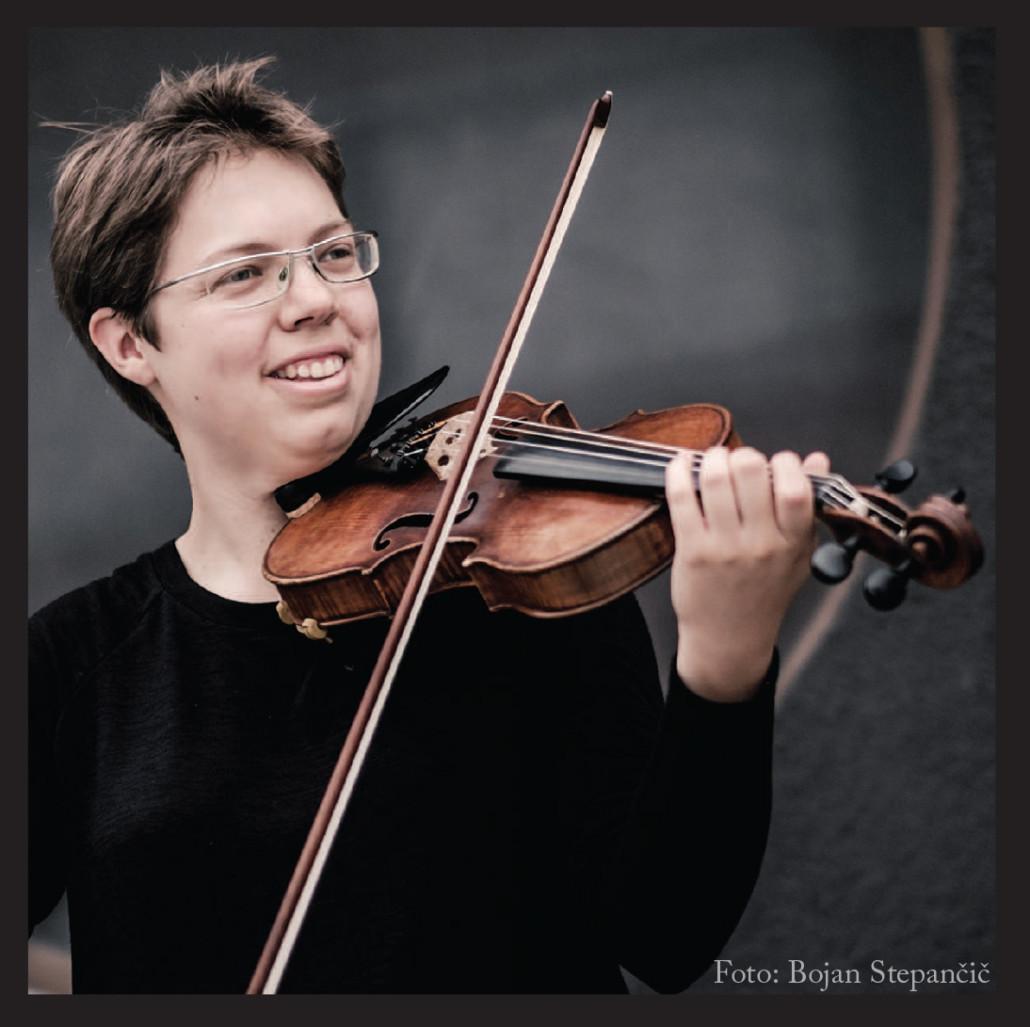When: 1–3 April 2016
Where: Rimska cesta 2b, Ljubljana
Who:
Barja Drnovšek graduated at the Carinthian State Conservatorium with Prof Helfried Fister and obtained her master’s degree from the Academy of Music in Ljubljana with Prof Gorjan Košuta.
While pursuing her studies, she found folk music intriguing, which led her to attend various workshops and folk camps (Etno Histeria, Trad. Lockenhaus music workshop etc.). In addition to classical orchestras (SFK Symphony Orchestra, Wiener Jeunesse Orchester, Arseia String Orchestra, MLS, Junge Philharmonie Wien etc.), she has been increasingly engaged in a number of ensembles that play folk music (Symbolic Orchestra, Terrafolk, Ida&Other Bears, Grad gori!, a duet with Bojan Cvetrežnik, Svetlana Makarovič, Baraka etc.). Soon, however, this activity became a profession and she quit her job at a public school and became a freelance musician and a music teacher. She teaches violin and other instruments and holds workshops as part of the educational programmes of the ONE Music Society. In addition, Drnovšek takes part in theatre and puppet performances and works as a session musician recording music for films, cartoons and pop musicians.
What:
BALFOLK
Explore folk dances from those European countries where dancing is part of everyday life, where people do not wear traditional costumes and do not dance to “perform” but rather out of pure joy – everyone, young and old. You will make a journey to France, Italy and Belgium, through Scandinavia and to the Balkans, and learn about the music and the basic steps for the mazurka, schottish, circle circassien, kolo, polska, hanter dro, chapelloise and others. Expand your repertoire with tunes that can inspire our pupils as well as our classical performances. If we play them around the world, someone will definitely move their feet at some point.
Video:
Timetable:
Friday, 6pm–9pm;
Saturday 10am–1pm, 4pm–7pm;
Sunday 10am–1pm, 4pm–7pm, final performance;
Participants are required to attend all workshops of the course.
Price:
150€/workshop ; 450€/yearly participation (90€/workshop)
Deadline for an application:
8 days before each workshop
Deadline for payment :
September 24th for the yearly participation.
For one course: on the day of the course.
Yearly participation has to be paid in 3 amounts of 150€ (before the September, November and January courses)
If you wish to be a part of our courses, just send a mail on: mail.specialcourses@gmail.com and we will send you an invoice.


